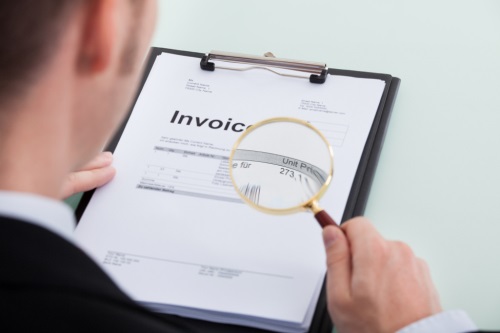Strategies to Combat Invoice Scams

As a new small business owner, one of your primary concerns should be safeguarding your startup's cash flow. In today's digital age, invoice scams pose a significant threat to businesses of all sizes, often targeting startups due to their vulnerable financial infrastructure. Invoice fraud can drain your finances and jeopardize the sustainability of your venture. However, with proactive measures and vigilance, you can protect your business from falling victim to these schemes.
Invoice scams come in various forms, but they typically involve fraudulent invoices sent to businesses with the aim of tricking them into making payments for goods or services that were never received or authorized. These scams often exploit vulnerabilities in a company's accounting systems or exploit the trust established between businesses and their suppliers or clients.
Proactive Steps to Mitigate Invoice Scams
Implement Robust Verification Procedures: Develop a stringent process for verifying invoices before making payments. Require multiple levels of approval for significant transactions, and ensure that all invoices are cross-checked with purchase orders and delivery receipts.
Train Your Staff: Educate your employees about common invoice scam tactics and how to identify suspicious invoices. Provide regular training sessions to keep your team updated on the latest fraud trends and prevention techniques.
Verify Supplier Information: Before engaging with a new supplier, conduct thorough due diligence to verify their legitimacy. Check their credentials, reviews, and business history to ensure they are reputable and trustworthy.
Establish Secure Communication Channels: Use secure communication channels, such as encrypted email or dedicated vendor portals, for transmitting sensitive financial information and invoices. Avoid sending or receiving invoices via unsecured channels like regular email, which are more susceptible to interception by fraudsters.
Implement Segregation of Duties: Divide responsibilities among your staff to prevent any single individual from having complete control over the invoice approval and payment process. This helps to minimize the risk of internal collusion or fraud.
Stay Updated on Scam Tactics: Keep abreast of the latest invoice scam tactics and fraud trends by regularly monitoring industry news, attending seminars, and networking with other business owners. Awareness is key to staying ahead of scammers.
Utilize Technology: Invest in accounting software or invoice processing tools that offer built-in fraud detection features. These tools can automatically flag suspicious invoices based on predefined criteria, helping you identify potential scams more efficiently.
Verify Changes in Payment Details: Be wary of any requests to change payment details or banking information, especially if they come unexpectedly or from an unfamiliar source. Always verify such requests through a trusted communication channel before proceeding with any changes.
Maintain Accurate Records: Keep detailed records of all invoices, payments, and communications with suppliers. This documentation can serve as evidence in case of any disputes or investigations related to invoice fraud.
Stay Vigilant: Remain vigilant and skeptical when dealing with unfamiliar or unexpected invoices. Trust your instincts and don't hesitate to question any inconsistencies or discrepancies that raise red flags.
Protecting your startup's cash flow from invoice scams requires a proactive and multi-faceted approach. By implementing robust verification procedures, educating your staff, verifying supplier information, and utilizing technology, you can significantly reduce the risk of falling victim to these fraudulent schemes. Stay informed, stay vigilant, and prioritize the security of your business's financial health. Remember, prevention is always better than cure when it comes to combating invoice fraud.
Recommend for you:

Stop Using the Term 'Cold Calling' — Use These 5 Alternative Names Instead
In the world of sales and business development, the term "cold calling" has been the go-to phrase for decades.
Who You Hire Matters — Building a Team That's Built to Last
In the labyrinth of challenges that besiege small businesses, one factor towers above the rest in determining success: the team you assemble.
2 Ways to Instantly Stand Out and Secure Venture Capital
In the fast-paced world of business and entrepreneurship, securing venture capital can often make the difference between a startup's success or failure.
Tackling Burnout: CEO Strategies for a Healthier Workforce
In today’s fast-paced world, burnout has become a significant concern for both employees and employers alike.
